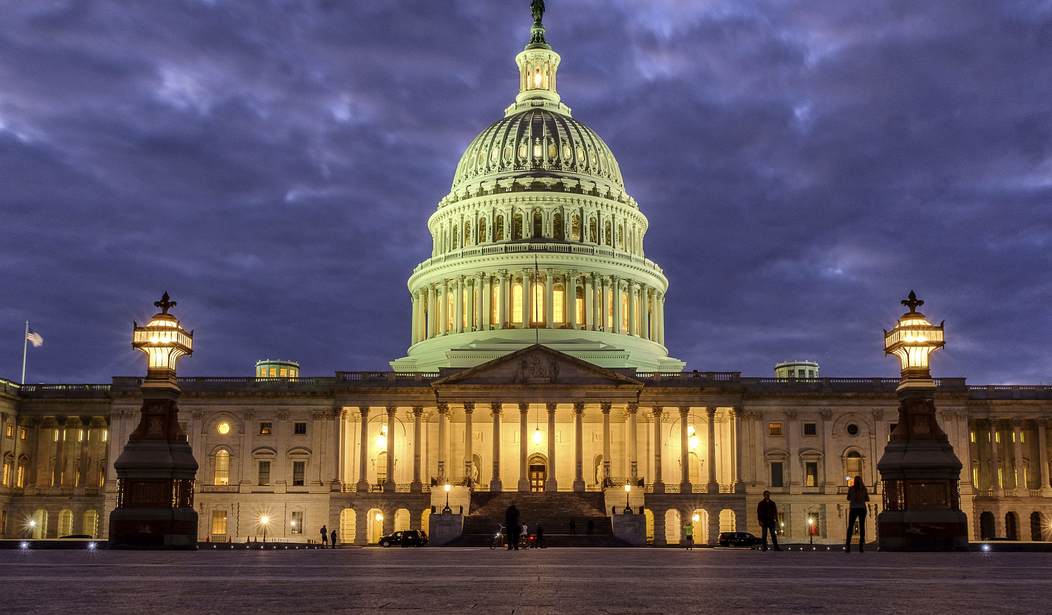We're now less than three months away from the midterms, though that's still plenty of time for anything to happen. To some, that means that Democrats now have a chance to keep control of both the U.S. House of Representatives and the U.S. Senate.
The mainstream media, often allies of the Democratic Party, has surely been celebrating what they perceive as victories that President Joe Biden has had, especially when it comes to passing the misnamed Inflation Reduction Act of 2022. They were even doing it before the bill passed, with a particularly memorable piece from NPR on August 5 by Rachel Treisman reading "What Biden's low approval ratings and high-profile wins could mean for the midterms."
As I highlighted earlier in the week, The Washington Post on Monday put out a piece from Yasmeen Abutaleb and Tyler Pager highlighting "Inside Biden’s hot streak, from the poolside to the Capitol."
Also on Monday, CNN published an analysis by Stephen Collinson, "How Biden's big win in the Senate could change America and reshape his fortunes."
Many pieces include a focus on the midterms. On Tuesday, POLITICO published a report from Christopher Cadelago and Jonathan Lemire, wondering "Biden suddenly is piling up wins. Can Dems make it stick?" That was earlier in the week, though. For on Friday, POLITICO also published "Democrats in array at last, with domestic agenda in bloom," this one by Sarah Ferris and Jordain Carney.
Writing for Spectrum News, Ryan Chatelin wrote on Thursday how "In cross-country midterm blitz, Biden plans to declare victory over special interest groups."
Recommended
Also on Friday, Jonathan Chait even claimed for New York Magazine that it's "Joe Biden’s Best Week Ever."
Returning to NPR, a Friday morning article by Domenico Montanaro went for a much more optimistic take, declaring "Biden's recent wins could give Democrats a boost heading into the midterms."
Robert Reich, nasty though he may be, even made it on the Friday edition of RealClearPolitics (RCP) with his Thursday op-ed for The Guardian claiming that "When it comes to the midterms, things are starting to tilt in the Democrats’ favor."
How much of these pieces are to be taken all that seriously? The ones that acknowledge it may still be an uphill battle for Democrats to hold onto both the House and Senate, as Collinson's does, despite his hopeful-sounding headline.
The POLITICO piece from earlier this week mentions that "Public polling in recent weeks has shown some of their Senate candidates opening up leads in races that could determine control of the upper chamber. And even generic congressional ballots, which have favored Republicans for months, have started tilting in favor of Democrats," but doesn't get much more specific than that. It also goes on to write that "experts believe the gap would still have to grow considerably for them to keep the House because of partisan gerrymandering. And some worry that the calendar may be too tight for the election currents to shift so dramatically to break precedent."
Not even the more recent one makes much mention of the polls. What optimism there is does not come from raw data, but rather Democratic members:
Of course, it’s uncertain whether one bill is enough to turn around the historic headwinds and inflation angst that have put the House majority out of reach for Democrats this fall and imperiled their control of the Senate, according to most polls. And the party must now sell the bill to voters who won’t see much of its benefits for years — not to mention its own progressive base, where there’s keen awareness of how many priorities got dropped.
Even so, three months before Election Day, many party lawmakers are the most upbeat they’ve been in months about their chances to defy, or at least temper, the GOP’s advantage.
“I do think we have a really good story to tell. And we need to sing it from every rooftop over the next couple of months,” said Congressional Progressive Caucus Chair Rep. Pramila Jayapal (D-Wash.).
Chait, to his credit, does make mention of polling, writing that the "altered political landscape has been reflected in polls showing the public moving back toward a preference for Democratic control of Congress in the upcoming midterm elections," linking to New York Magazine's analysis of races to watch.
There's no mention of actual polling in Friday's NPR piece, nor is there in Reich's, for all of his ranting. The latter actually references the January 6 select committee hearings as something he wants readers to "consider." It's worth reminding that as Julio covered earlier this week, a Monmouth poll showed the hearings did little to change Americans' minds.
Now, when it comes to more in depth polling, Nate Silver of FiveThirtyEight did tweet out that it could be one of those "*special* kind of midterm elections," in that the party in power does not have a bad year in the midterms. As Silver claims, "a GOP takeover is far from a foregone conclusion," with Democrats now having a 20 percent chance to keep control of the House.
Recent polling and election results are consistent with a political environment that is a) politically neutral (i.e. generic ballot of ~0) and b) no GOP enthusiasm advantage.
— Nate Silver (@NateSilver538) August 12, 2022
*If* that holds, the *House* is a toss-up, and Ds are very likely to hold the Senate and may gain seats.
It's not until Silver's third tweet that he acknowledges such a model won't actually hold, which is why the forecast only gives the Democrats 20 percent.
Recent polling and election results are consistent with a political environment that is a) politically neutral (i.e. generic ballot of ~0) and b) no GOP enthusiasm advantage.
— Nate Silver (@NateSilver538) August 12, 2022
*If* that holds, the *House* is a toss-up, and Ds are very likely to hold the Senate and may gain seats.
FiveThirtyEight still has Republicans "favored" to win control of the House. When it comes to their generic ballot, Democrats are up just 0.3 percent, 43.8 percent to 43.5 percent.
While the margins are even more razor thin, RealClearPolitics has Republicans up by 0.1 percent, 44.3 percent to 44.2 percent.
Returning to POLITICO, for all of their chatter and excitement about Biden's week, they still regard the Senate as "Leans Republican," and the House as "Likely Republican."
It's also relevant to remind that pollsters underestimated Republican performance in past midterm elections.
And, when it comes to the Senate, which is leaning more in Democrats' favor, Kurt Schlichter earlier this week had quite the rallying column about how not to believe such prognosticators.

























Join the conversation as a VIP Member